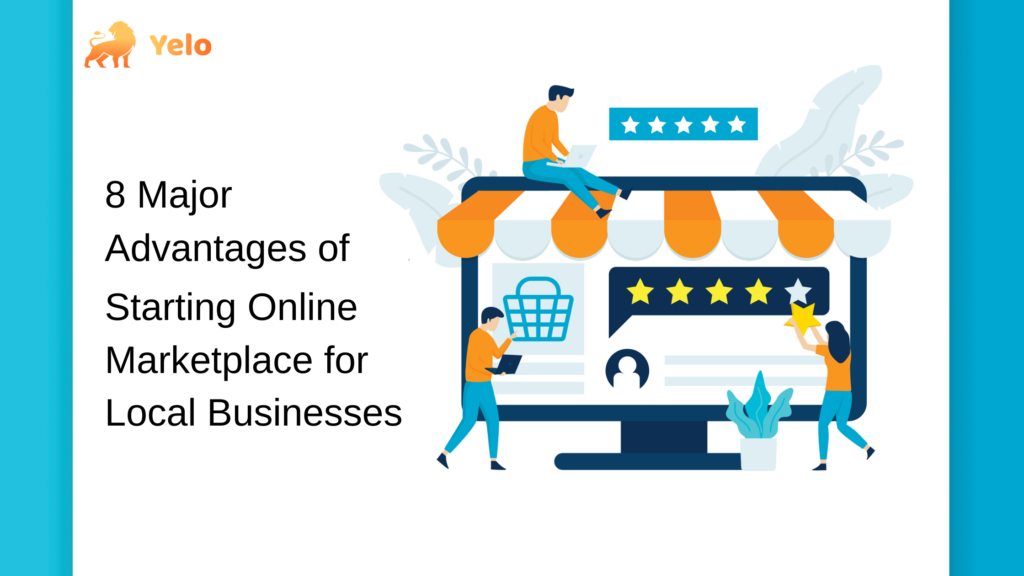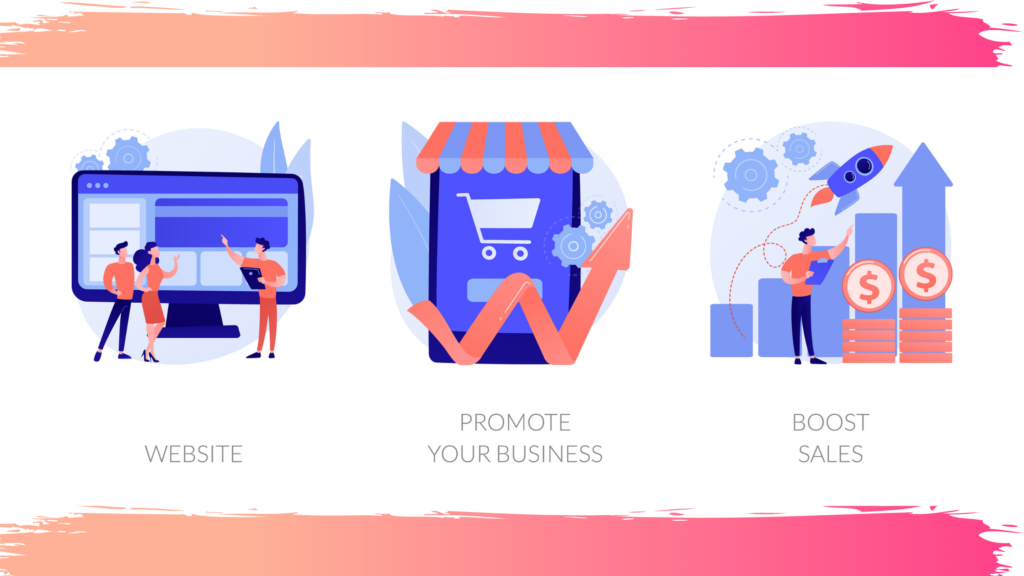

What is an Online Marketplace?
An online marketplace is a website or app that connects buyers with sellers and serves as a mediator between customers and companies or individuals looking to sell their products or services in the B2B or B2C sectors. Typically, online marketplaces are owned by a third party that doesn’t sell any product or service itself but runs the marketplace.
There are also instances where a local business runs a dedicated online marketplace for its offerings and enjoys immense control over the functioning of the marketplace. If you’re still looking for ideas to start an Online Marketplace, here are some of the most profitable low-cost hyperlocal businesses to start in 2020.
There are five types of online marketplaces you need to be aware of:
- Horizontal marketplace: Different products with similar characteristics are sold in this type of marketplace
- Vertical marketplace: This kind of marketplace offers the same type of products from different vendors
- Hyperlocal marketplace: A local business marketplace
- Hybrid marketplace: In a hybrid marketplace, the marketplace owner sells their products along with those from other vendors
- Global marketplace: As the name suggests, a global marketplace sell all kinds of products from different suppliers
Advantages of an Online Marketplace
Now that you’re aware of what an online marketplace is, let’s look at the advantages it offers to local businesses.
- Increase in Sales
Online marketplaces help local businesses reach a far bigger audience than a regular brick-and-mortar store would. Your business can be introduced to potential buyers without their geographical location is a barrier. An online marketplace is best suited for businesses that are not able to move their inventory due to their location. When you sign up for an online marketplace or create your own, buyers from around the country and the world get access to your products and the option to buy them. When setting up an online marketplace for local businesses, all you need to do is present your product in the best light and offer customers a viable reason to opt for your product. With an online marketplace, your products get the promotion and reach that they can’t get offline.
2. Better Profit Margins
With more reach, thanks to an online marketplace, more customers will end up buying your products and that, in turn, will help you achieve greater profit margins. According to a recent survey, over 55% of businesses that sell online achieve a profit margin of more than 20%. It’s not just the increased reach and sales that help businesses become more profitable when they sell online. The low cost of setting up an online marketplace also plays a part in helping you achieve better profit margins. For instance, if you run a brick-and-mortar store, you have to pay a monthly rent that doesn’t come cheap. But if you run an online store, you don’t have to worry about any such costs.
3. Automation, Everywhere
How efficiently you run a business has a major role to play in your eventual profits. A badly managed business, whether online or offline, will not be profitable in the long run. Given how advanced technology has become in the recent past, an online mode of conducting business is more conducive to automation than an offline one. When you set up an online marketplace, you have complete control of how you want to present your products, their prices, the orders you accept, the delivery logistics, data analytics, and much more. With the advanced automation opportunities that come with an online marketplace, you can focus on the actual product more than running the day-to-day of your business. Even if you don’t start your online marketplace and sign up for an existing one, you’ve plenty of freedom to do business as you deem fit.
4. Marginal Setup Cost
If you’re starting a business from scratch, one of the biggest things you need to factor in is the cost involved with setting up a business. If you opt for an offline mode of business, you need to think about renting a store, hiring a team to run the store, and a lot of other expenses. On the other hand, if you set up an online store, these costs don’t exist. You’ll be paying a menial fee for the website and on marketing and promotions but the exact amount is entirely up to you. Even in terms of showcasing your products, you don’t need to spend a lot of time and money on making your store beautiful and inviting. All you need to do for your online store is click flattering pictures of your products and upload them on the website. The low setup cost associated with an online marketplace makes it the preferred choice for entrepreneurs who don’t have a lot of starting capital but a good product they believe in.
5. Lower Risk
It goes without saying that anything you invest less amount of money in is a less risky proposition than the one where you invest more money. That applies to an online marketplace business and an offline store as well. Since the former has a low setup cost, the risk associated with it is also lower. In terms of the business model, an online marketplace is far more scalable than a brick and mortar store, given you maintain a proper inventory. As long as you’re in good standing with your vendors and the demand for your product rises gradually, you’ll be able to scale your business without any trouble. The only risk associated with an online marketplace is meeting your customers’ demand if traffic grows at a rapid pace. And that’s never a bad thing for any business, so long as you’re prepared to bring more vendors onboard and fulfill the demand.
6. Better Inventory Management
With an online marketplace, you don’t have to worry about investing in a physical store yourself. You can partner with reliable vendors who will supply you with the products when needed and avoid paying large sums of money to maintain your inventory. The way this works is simple. Every time you receive an order, you can either accept it or reject it based on different factors like its availability and expected time of delivery. If you accept the order, you’ll then reach out to your vendors and get them to ship the product to you (if you manage logistics yourself) or to your logistics partner. As you can imagine, this process can become complicated as the number of orders per day rises. That’s where hyperlocal online marketplace platforms like Yelo can help. You can automate all the menial tasks and also use Yelo’s inventory and logistics tools to better run your online marketplace business.
7. Enhanced Marketing
Marketing is extremely crucial for any online business. This is because while brick and mortar stores have lower visibility, they still get customers who happen to walk past the store or know of it from their acquaintances. That is not the case with an online marketplace. Given how popular they have become, getting your online store to stand out amongst the rest requires a dedicated marketing effort. Fortunately, with the move to digital, there are tons of opportunities to promote your business online. From clickable banners and ads on relevant websites to robust SEO practices, there are numerous ways you can make potential customers aware of your products. There are other ways to market your online store as well including social media marketing, display marketing, email marketing, push notifications, and more. All you need to do is come up with a clever hook that tells customers about our online store and gets them to visit your website or app.
8. Analytics
No business can function without analyzing customer patterns and behaviors and taking crucial decisions about their business based on this data. For instance, if you are running a search ad campaign, the only way to know if the campaign was successful is by tracking and then analyzing the data. The date you’ll receive will include variables like number of clicks, time spent on the website, number of button clicks, and most importantly the source of the traffic coming into your website. Armed with this data, you can figure out which mode of marketing is working better for you, which product is attracting more customers but not enough for them to buy it, and other customer behavior trends. Once you accurately sort through this data, you’ll have a clear action plan on how to make your business better. This kind of insight is available only when you have an online store.

These are some of the most important advantages of an online marketplace for local businesses. If you’re looking for a reliable online marketplace platform, we have just the solution for you. Yelo is an online marketplace builder that can help you set up your online marketplace within a day! Yelo is powered by features designed to make your entrepreneurial journey easier. Some of the best features of Yelo are:
- A powerful ordering dashboard using which the marketplace admin can monitor orders, track data, market the products, manage vendors, and more
- Customer-friendly mobile app and website using which customers can place orders on your marketplace
- Dedicated merchant apps that allow them to directly chat with customers, monitor order dispatch, and much more
- Personalize UI/UX and website design, giving you the freedom to create a marketplace the way you want to
- Stellar inventory management tools to help you accurately and efficiently manage your inventory
- Over 100 payment gateways including RazorPay, PayTM, PayPal, and many others
- A dedicated support team that is available 24/7 to answer all your queries about using Yelo to the best of your ability
Give your entrepreneurial dreams the wings they deserve by partnering with Yelo. Our online marketplace platform is designed to help you bring your business to life in the easiest way possible. Got questions about how Yelo can help you set up an online marketplace?
Sign up for Yelo’s 14 days free trial and check it out for yourself.
Subscribe to stay ahead with the latest updates and entrepreneurial insights!

Subscribe to our newsletter
Get access to the latest industry & product insights.



















